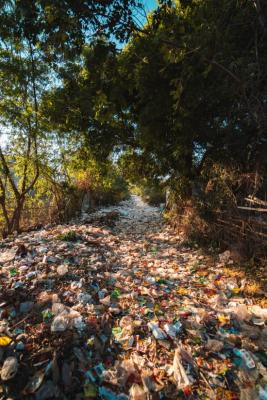Exposing The Myth Of Plastic Recycling: Why A Majority Is Burned Or Thrown In A Landfill
Many Americans go through great pains to recycle plastic.
But much of that plastic isn’t recycled at all. In fact, the idea that plastics are refashioned into new products is largely a myth, Sharon Lerner writes in The Intercept.
“The vast majority of plastic that has ever been produced — 79% — has actually ended up in landfills or scattered around the world or burned, but not refashioned into new products, which is what we hope for when we talk about recycling,” Lerner says. “For plastic bags, it's less than 1% of tens of billions that are used in the U.S. alone. And so overall in the U.S., our plastic recycling rate peaked in 2014 at 9.5% so that's less than 10%.”
She says recycling companies go to great lengths to sell their products. China used to take the majority of American plastic until 2017, but it wasn’t actually recycled when it got there.
“For a long time, we've just been offloading our waste and that allows us not to see it, right?” Lerner says. “We put it in a bag. It goes somewhere else. Goodbye. And it allows us not to feel guilt.”
Another problem is a lot of local governments tell residents to put all types of plastics in the recycle bin. That’s an issue because some types simply aren’t recyclable, says Judith Enck, a former regional Environmental Protection Agency official and founder of Beyond Plastics.
“They did that because they thought it would be easier for people, and then they would pull out the nonrecyclables at great taxpayer expense,” she says. “And then what happened is when all the plastics were shipped to China, China said, 'Hey, stop sending us all of your waste. These are not really recyclable.' ”
"Overall in the U.S., our plastic recycling rate peaked in 2014 at 9.5%."
Sharon Lerner
Now that China isn’t taking Americans’ plastic, it’s piling up at recycling facilities and going to poor countries that also don’t have the means to recycle some of those plastics, Lerner says.
Instead of putting all of our focus into recycling, Enck says, one solution is to be more mindful consumers and try to buy less plastic.




















